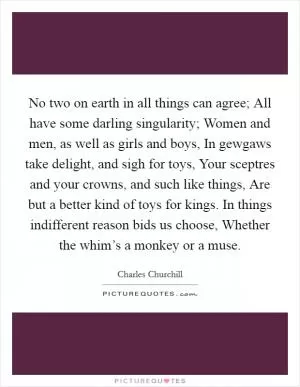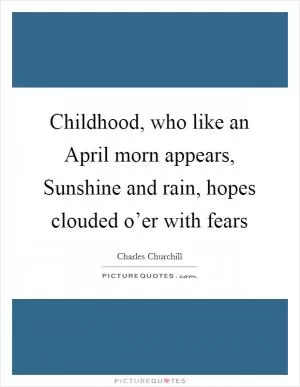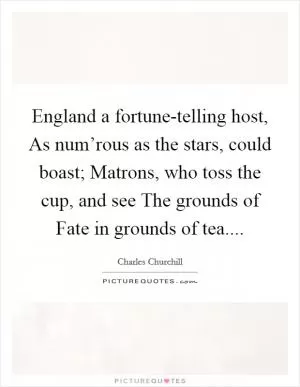Greatly his foes he dreads, but more his friends, he hurts me most who lavishly commends

Greatly his foes he dreads, but more his friends, he hurts me most who lavishly commends
The quote "Greatly his foes he dreads, but more his friends, he hurts me most who lavishly commends" perfectly encapsulates the complex and often contradictory nature of the poet Charles Churchill. Churchill was a renowned English poet and satirist of the 18th century, known for his sharp wit and scathing critiques of society and politics. He was a master of satire, using his poetry to expose the hypocrisies and follies of his contemporaries.Churchill's works were often controversial and divisive, earning him both admirers and enemies. He was not afraid to take on powerful figures and institutions, and his fearless criticism made him a target for those he satirized. However, Churchill's true genius lay in his ability to turn his critical eye on himself and his own flaws. He was acutely aware of his own shortcomings and was not afraid to acknowledge them in his poetry.
The quote suggests that Churchill was more wary of praise from his friends than criticism from his enemies. He understood that flattery could be a dangerous weapon, leading to complacency and a false sense of security. Churchill knew that true friends were those who were willing to challenge and push him to be better, rather than simply showering him with empty praise.












 Friendship Quotes
Friendship Quotes Love Quotes
Love Quotes Life Quotes
Life Quotes Funny Quotes
Funny Quotes Motivational Quotes
Motivational Quotes Inspirational Quotes
Inspirational Quotes